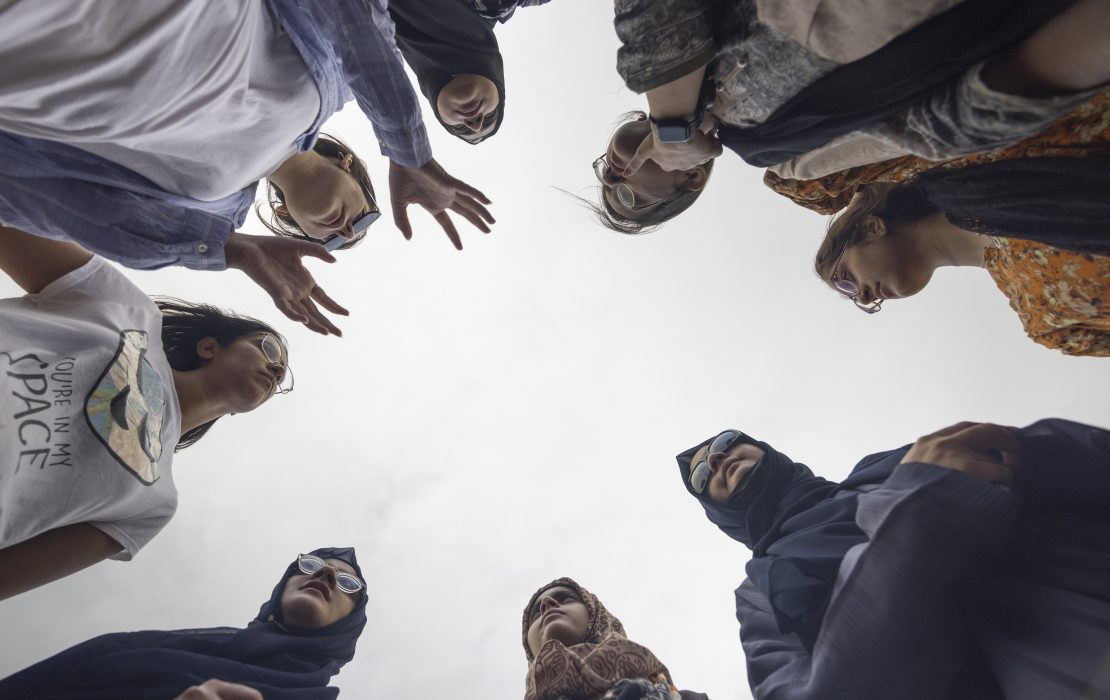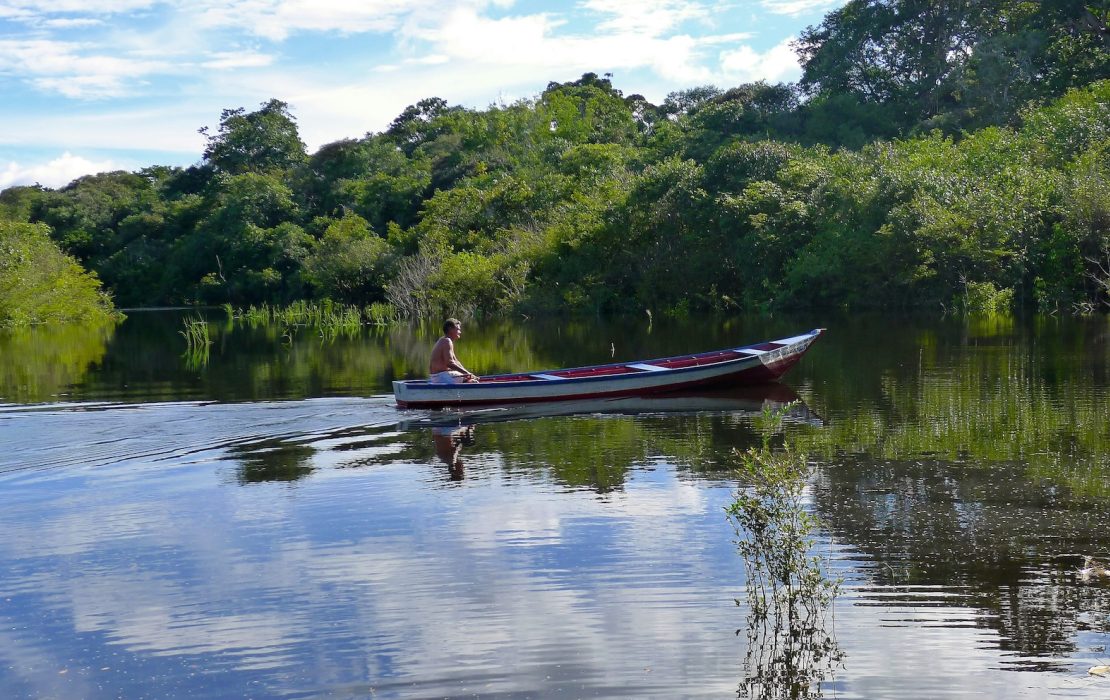
Photo: UNDP Uruguay
“The power of music is huge because it can reach people in different places and raise awareness on issues that are not usually thought about, such as environmental issues”
Mateo Jaen leads a music workshop at the Francisco Youth Centre in the city of Paysandú, in northwestern Uruguay. “El Francisco”, as neighbours call it, is one of Uruguay’s youth centres dedicated to helping young people from disadvantaged backgrounds socialize and receive support through educational and leisure activities.
In Mateo’s workshop, teenagers learn about music production. Mateo teaches them the processes of composition and writing lyrics and gives them tools for finding rhymes and rhythms. Young people also get the chance to play instruments and learn about the different aspects of recording and editing. Mateo transmits to the teenagers his knowledge and passion for hip hop and for music in general, which he has cultivated from a very young age.
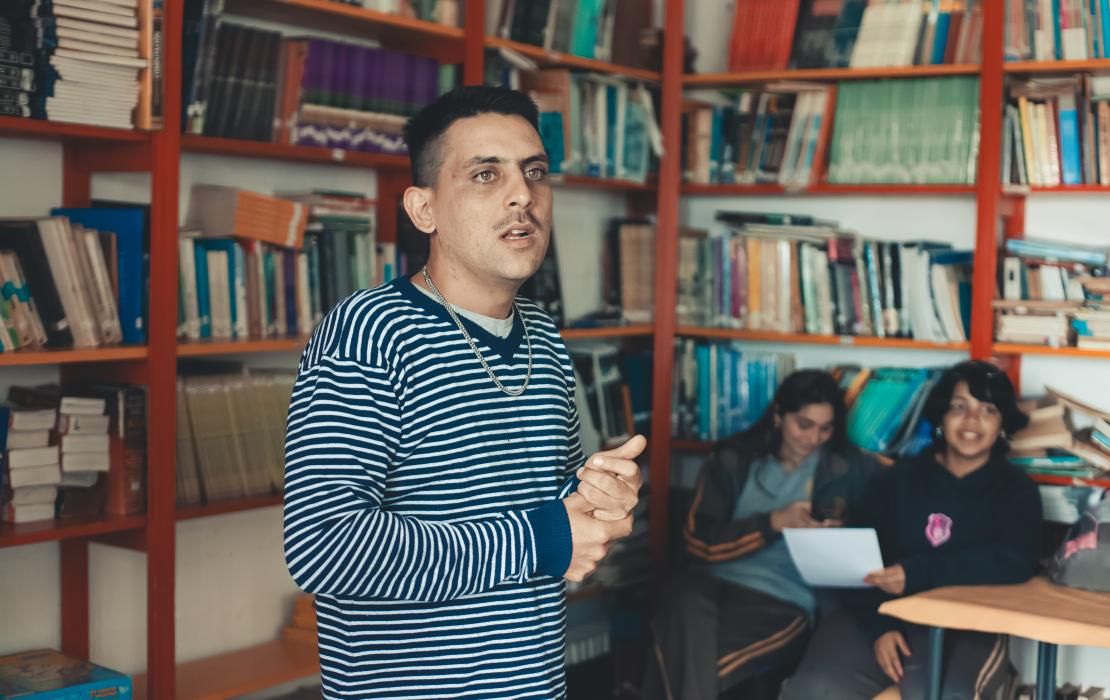
During his music workshops, Mateo witnessed that young people in his city are concerned about several environmental issues. @Photos: UNDP Uruguay
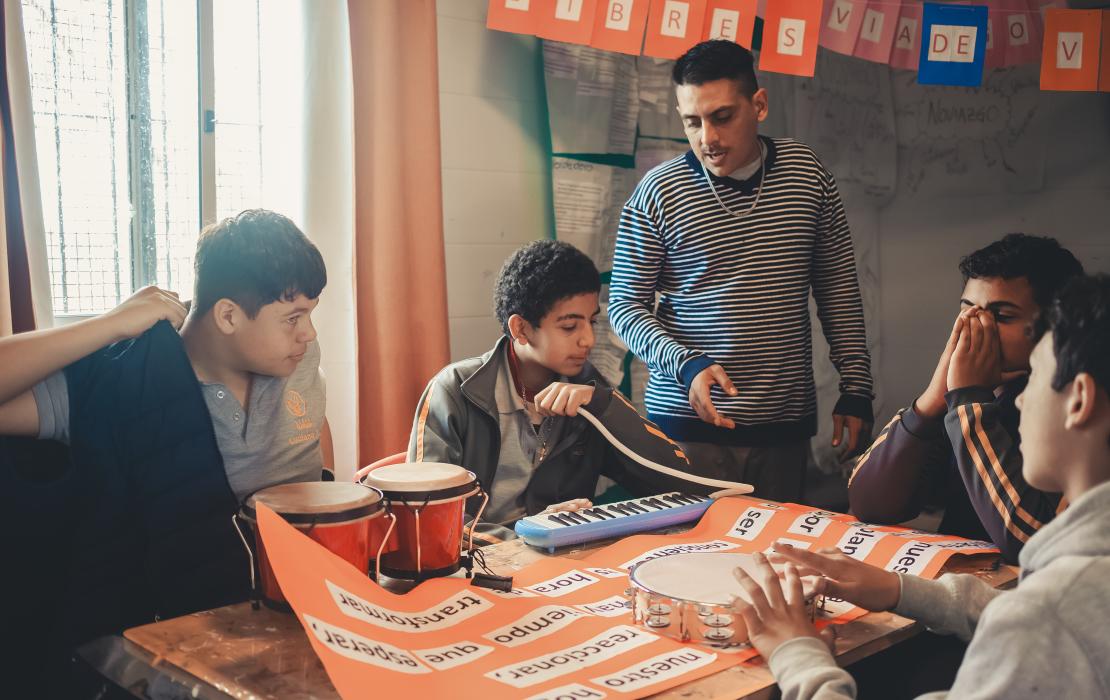
The city of Paysandú rests on the banks of the Uruguay River and has extensive areas that are vulnerable to the impacts of climate change, such as floods and droughts, leaving communities with no choice but to adapt. During his music workshops, Mateo witnessed that young people in his city are concerned about several environmental issues: the drought in Uruguay, the drinking water crisis, and the cyanobacteria and algae blooms in the Uruguay River.
Young people around the world are increasingly aware of the challenges and risks presented by the climate crisis and are mobilizing in unprecedented ways, raising their voices to create awareness and demand action. The youth of Paysandú are no exception.
With Mateo’s guidance and inspired by the power of music, a group of young people participating in the workshop composed a hip-hop song about the environmental issues affecting their city and their country.
The song, "Cuidemos nuestra casa" (“Let's protect our home”), reveals the main concerns and anxieties that young composers have: “The seas drown in plastic and pain/the forest burns in a cry of horror/the air poisons with fear/it is time to act before the worst comes.” It also gives voice to their call for united action: “Let’s protect our house/Earth is our home/there is no planet B/it’s time to react/together for the environment/there is no time to waste/we must be aware/it’s time to change”
"When someone hears the kids singing about these issues and feels how they are fighting for their future, the impact is much stronger."
The news that “El Francisco” had written a song reached the neighborhood and Mateo did not hesitate to go one step further: to record a music video. His hope was that the work and voices of the teenagers would reach more people, even beyond Paysandú and Uruguay.
The initiative, Acción Climática Joven, supported the filming and production of the video. On the day of the filming, the whole neighbourhood participated, coming together to act for a healthier planet.
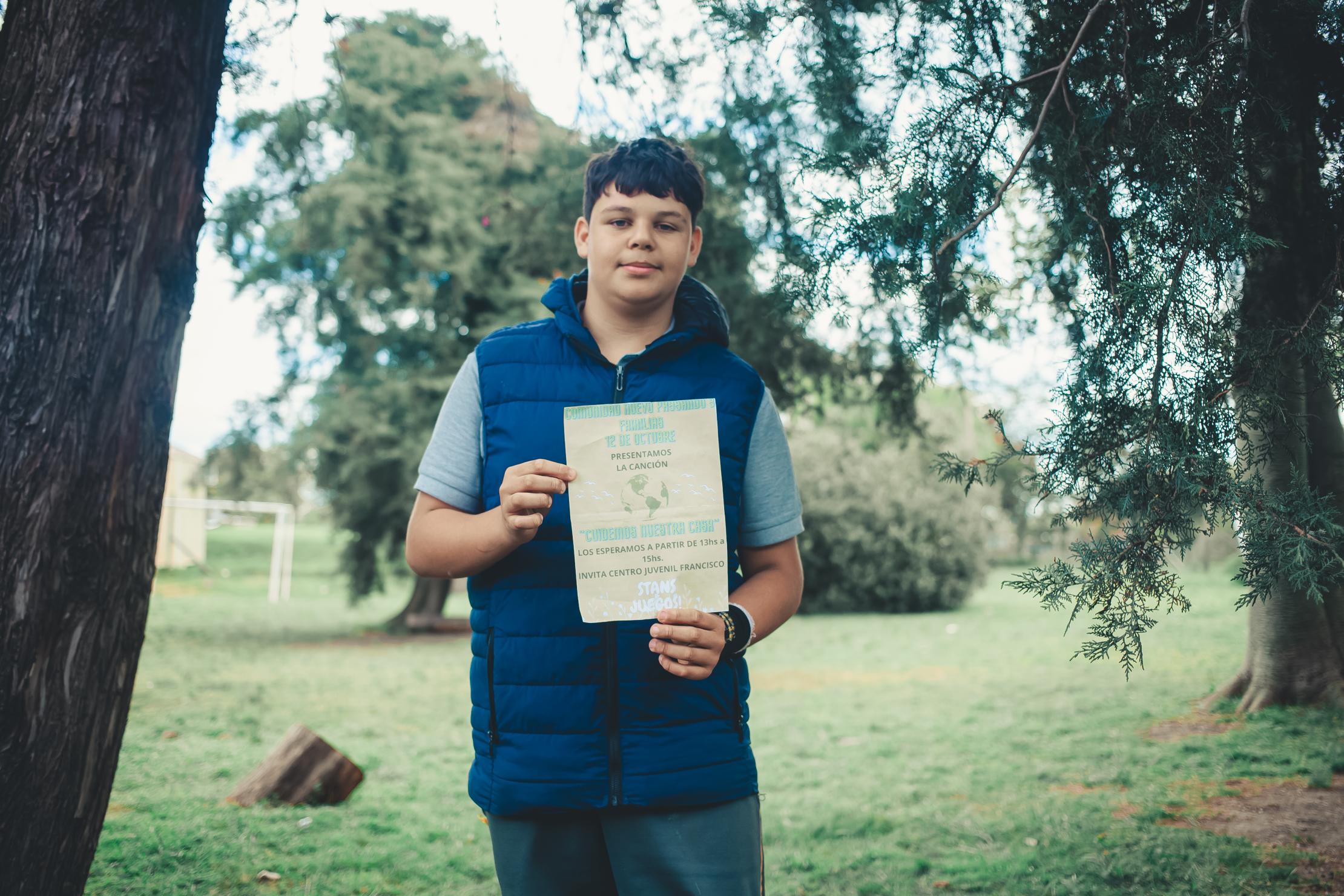
El Francisco is one of the eight youth centers that are part of Acción Climática Joven, an initiative created by UNDP, UNICEF and the Ministry of Environment in Uruguay to raise awareness and empower young people to get involved in climate action.
UNDP works to promote the meaningful inclusion and participation of youth voices in national climate plans consultations and on decision making. As part of these efforts, Accion Climática Joven works with youth centres to provide skills and trainings on climate change and environmental issues, giving them a platform to express their concerns and ideas, and acting as a bridge between youth and policymakers.
Each center engages with young people in diverse ways, focusing on the interests and skills that young people have in different local contexts. In Paysandú, two more centers, Estrella del Sur and Nuevo Camino, are working to raise environmental and climate awareness among young people.
In Estrella del Sur, teenagers are using games to engage with children and talk to them about the environment. During their carpentry workshops, they use their creativity to build games using recycled materials, such as jengas, stilt walkers, and target shooting, which they take to local schools so that children can learn while playing. They call these games “Take a chance for the environment”.
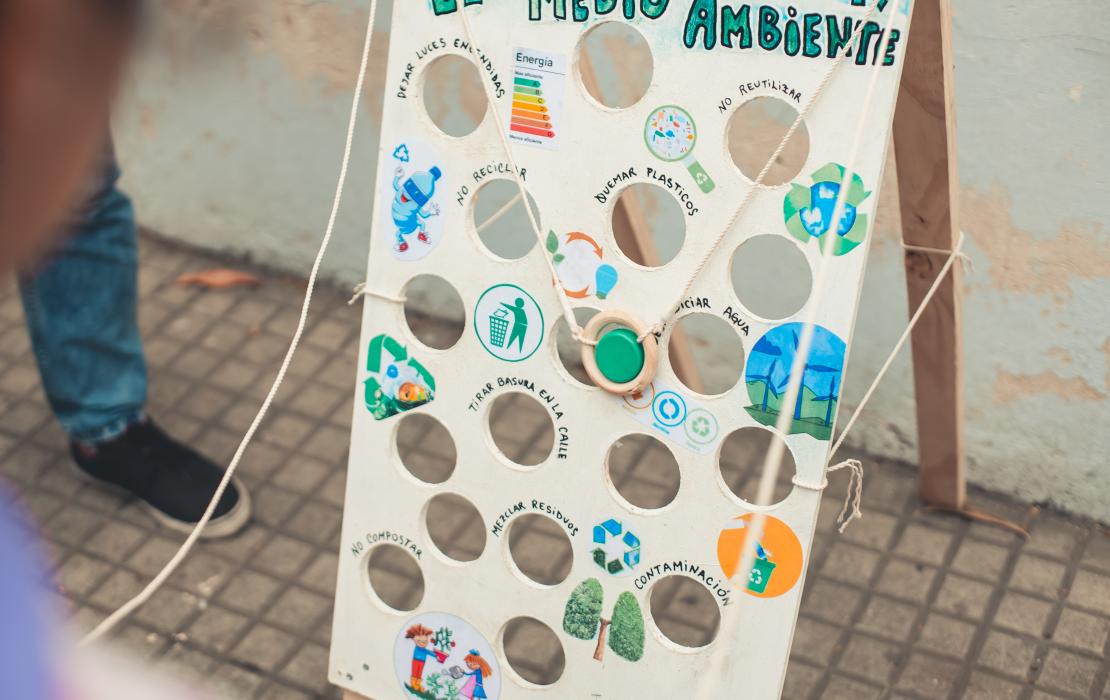
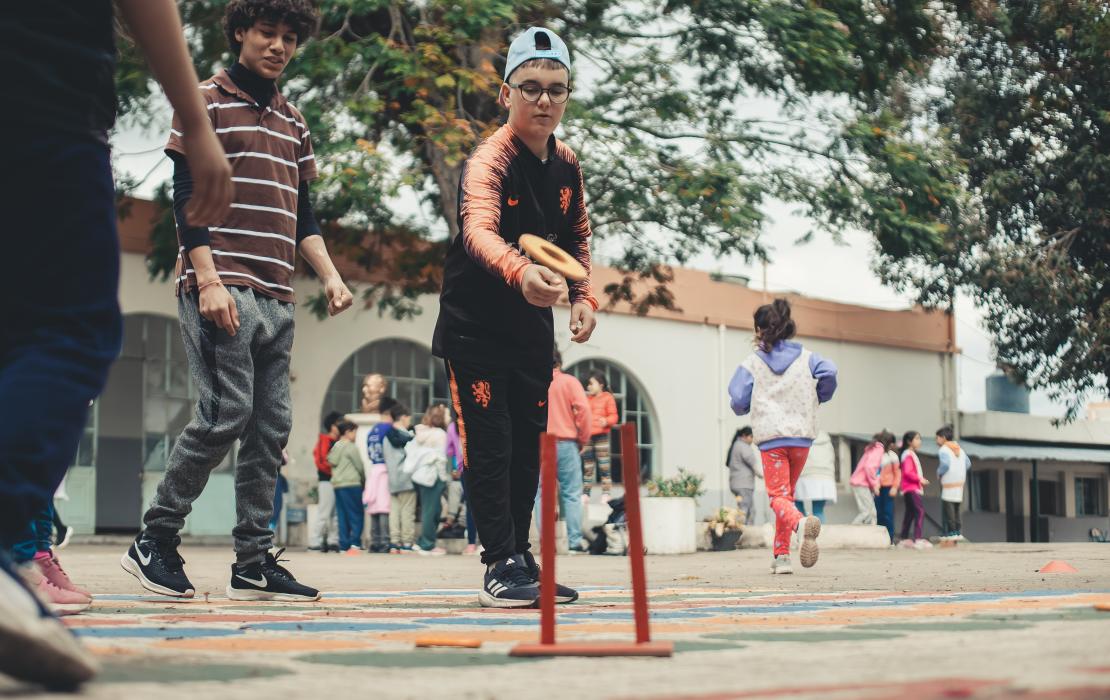
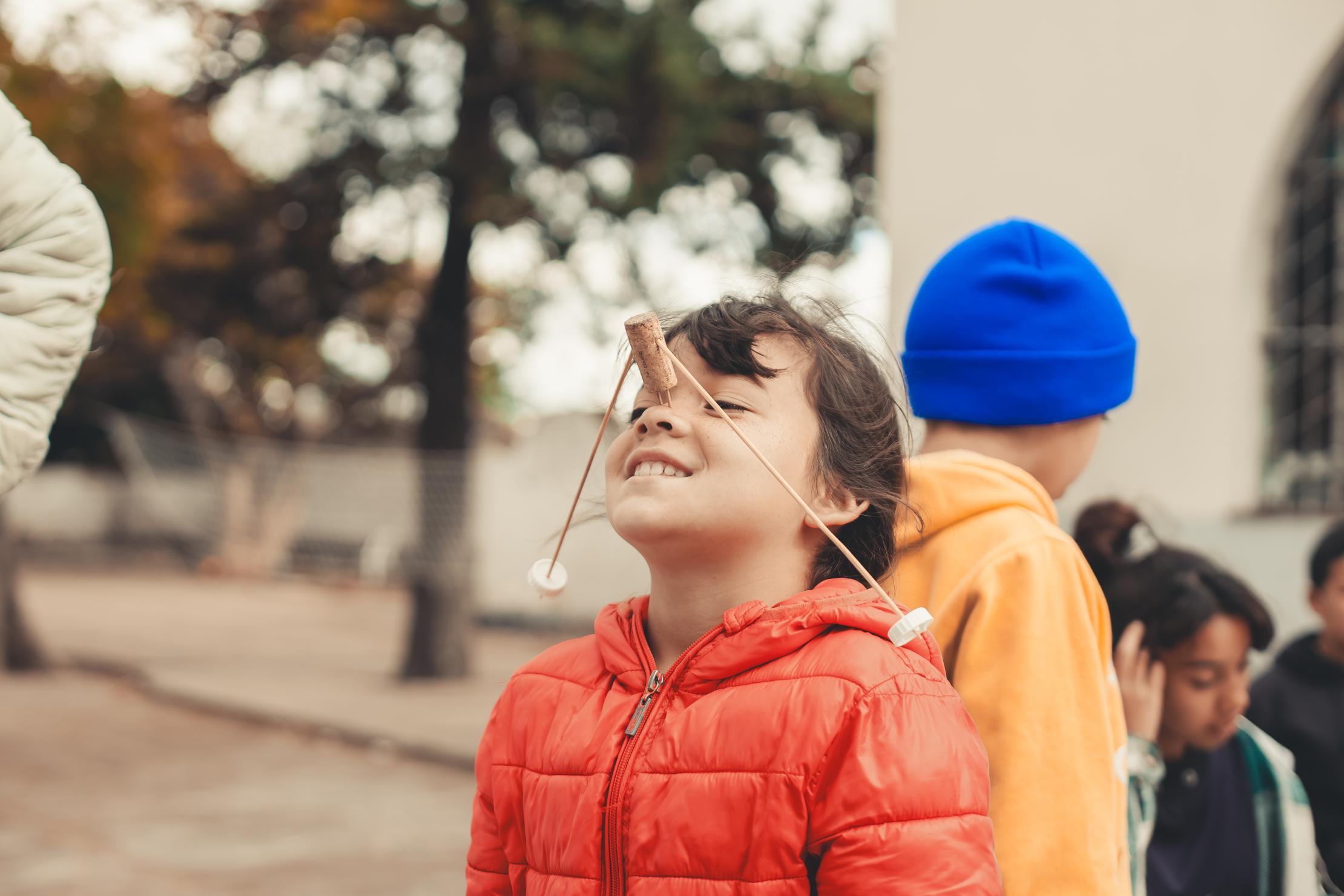
In Estrella del Sur Youth Centre, teenagers are using games to engage with children and talk to them about the environment. Photos: UNDP Uruguay
“What motivates me to go to school is to introduce the children to the games and to make them understand the problems that the world is experiencing at the moment because of all the waste that is accumulating” — Jony, Estrella del Sur Youth Centre.
At the other end of the city, young people attending El Nuevo Camino youth centre noticed that their community was facing large amounts of waste and pollution from plastic. They discussed with their educators what would be the best way to act on these issues. Using their sewing skills, they decided to make bags out of donated clothes that were piling up and distribute them to the local community, with the hope of reducing the number of plastic bags in the neighborhood.

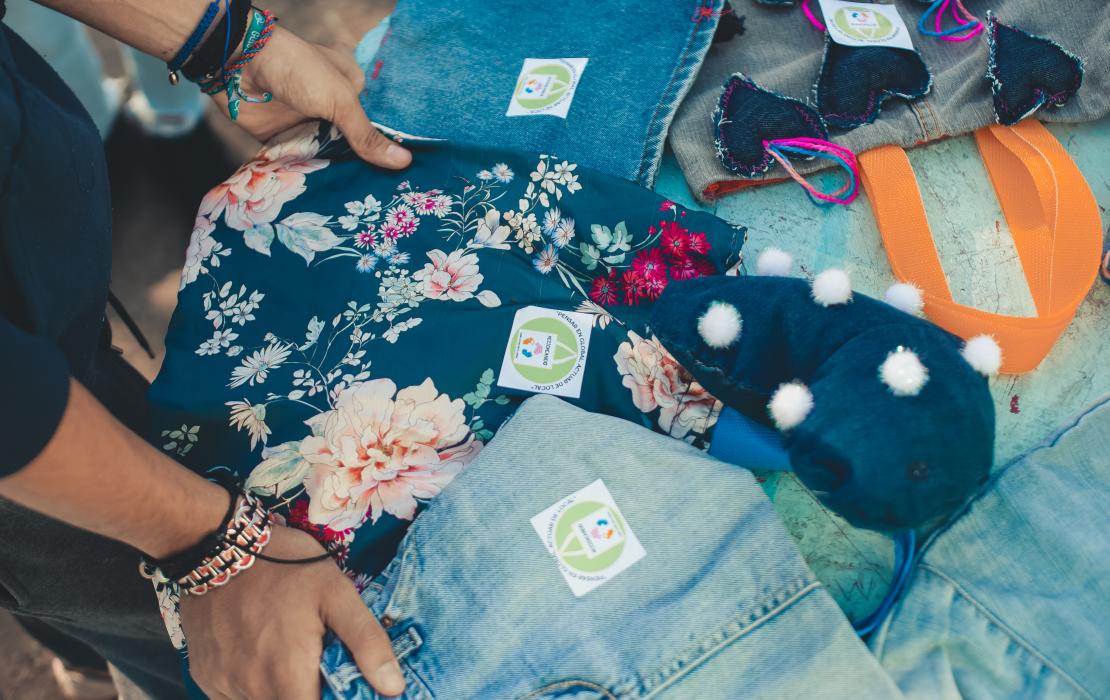
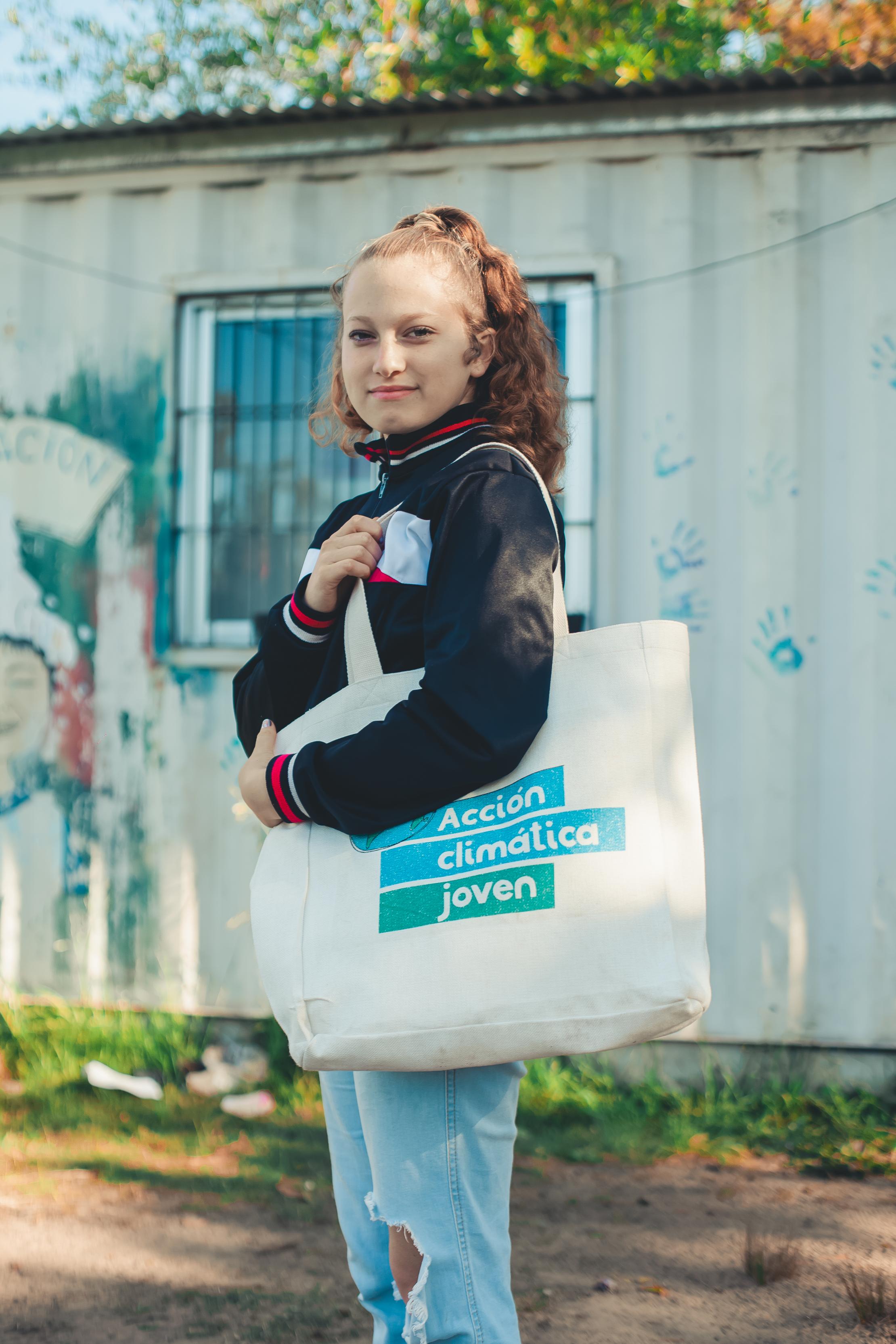
Young people attending El Nuevo Camino Youth Centre are using their skills to make bags out of donated clothes that were piling up and distribute them to the local community. Photos: UNDP Uruguay
“What we are trying to do is to make people aware of what is happening on the planet, and that makes me feel good” — Priscila, El Nuevo Camino Youth Centre.
Young people are protagonists in the search for solutions for a more sustainable future. Their concerns and questions are crucial for the development of community life and to generate a positive environment for change to be possible. As in many parts of the world, young people in Uruguay are raising their voice and are using their skills to accelerate climate action, including through the power of music.
***
The initiative Acción Climática Joven is part of UNDP’s mandate to empower and engage all parts of society in climate action, and it is implemented through UNDP’s Climate Promise initiative and UNDP’s ACC Rio Uruguay, a binational (Argentina and Uruguay) project to increase the resilience of cities and vulnerable coastal ecosystems along the Uruguay River to climate change.
